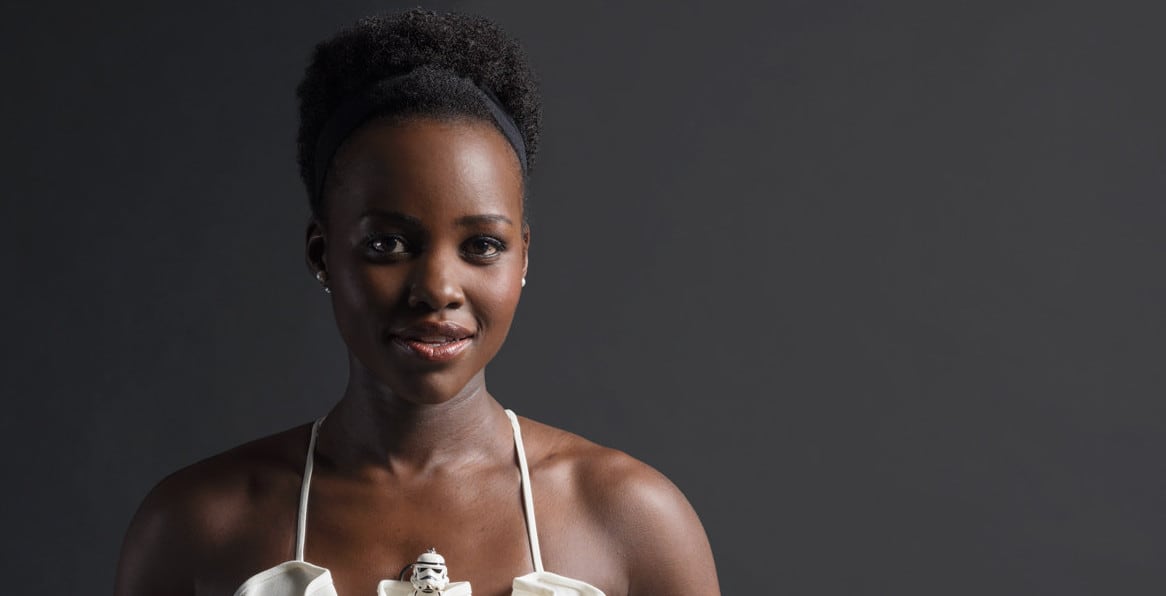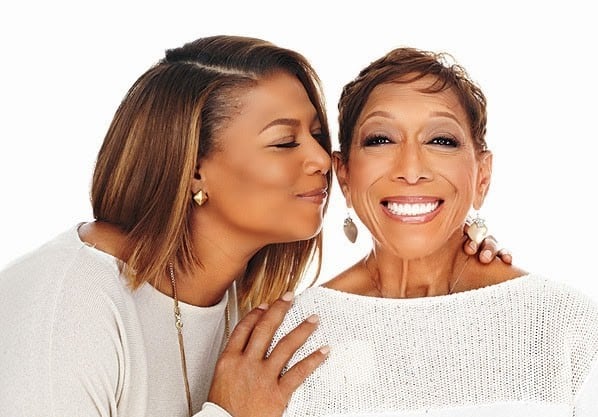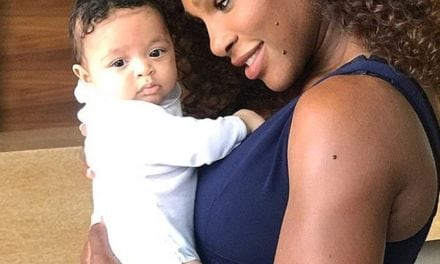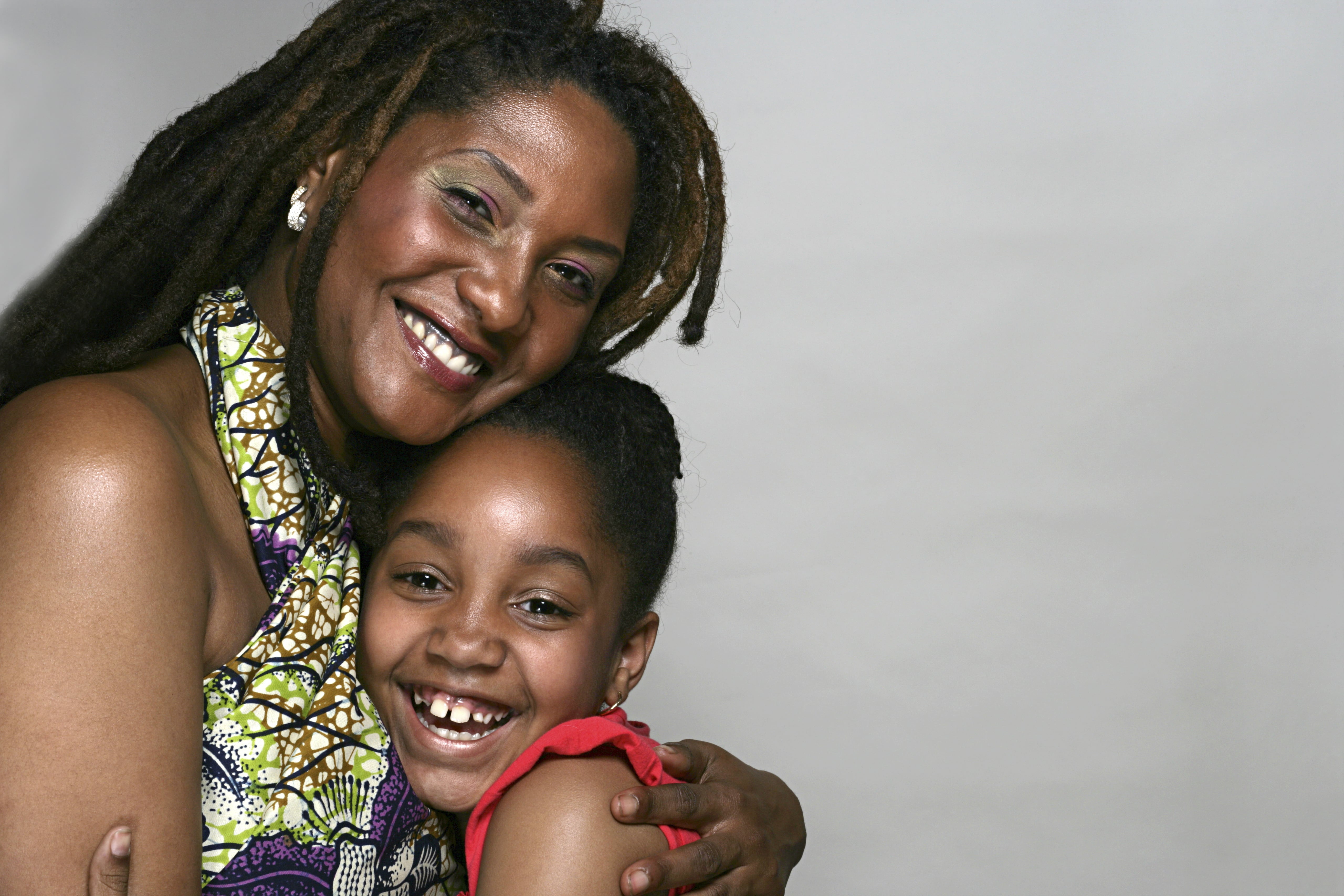Lupita Nyong’o believes in dreams. That’s a major reason she’s captivated by her latest project, Queen of Katwe. In the film, which opens this weekend, she portrays Harriet Mutesi, whose daughter Phiona wins hearts in Uganda as she becomes a grand master in chess.
“I printed out a copy of the script and less than 10 pages in, I was weeping,” Nyong’o recalls. “I was just so moved that this story was being told, that it was a true story and that it was from the perspective of this young girl from an unlikely place with an unlikely dream. And she achieves that dream.”
Similarly, Nyong’o, who also grew up in East Africa in neighboring Kenya, was determined to pursue her passion for acting. Her parents encouraged their six children to go for their dreams while maintaining a sense of purpose and personal standards.
Her ability to envision a world of possibilities was a stark contrast to the “layered mother” whom Nyong’o portrays in Queen of Katwe — “a woman who sees the world completely opposite from how I see the world.”
Nyong’o describes her character as “a woman who is suspicious of dreaming and wary of dreaming and thinks of dreaming as the enemy, because of the disappointment she has experienced in her own life.”
“She’s fiercely trying to protect her children form expecting more from life than what they have been dealt,” Nyong’o says. “Her journey is one in which she has to discover that to truly love her daughter she has to let her go and risk failure, but also risk success.”
“That kind of journey, that kind of arc that I could go on and tell an inspiring, uplifting, heart-warming African story at the same time was just an oasis — something I haven’t seen come across my desk before.”
It is also her meatiest film role since winning an Academy Award for Best Supporting Actress as Patsey in Steve McQueen’s 12 Years a Slave.
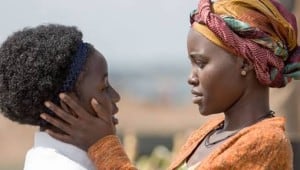
Lupita Nyong’o with Madina Nalwanga, who portrays her character’s daughter, Phiona Mutesi, in “Queen of Katwe.” (Photo: Disney)
“It’s not very often that you get to play someone who is still alive and play their very recent history,” she said of Harriet Mutesi, a single mother who struggled to raise four children in an impoverished area of Katwe in Kampala, the capital of Uganda. Mutesi has since moved into a house that her daughter, Phiona, built for her after becoming a world-class chess champion.
For Queen of Katwa, Nyong’o also learned to speak a little Luganda, she said during a promotional stop at a Georgetown hotel and at a Chinatown screening in Washington, D.C.
“It became an utter necessity when I tried to bond with my 2-year-old, on-screen son, Ivan,” she explained. “He did not trust me one bit, because he only spoke Luganda and I was speaking English, and he didn’t understand me.”
“Everyone was my teacher,” she said, “including my other children.”
Madina Nalwanga, who stood out at dance class in Katwe and was cast as Phiona, also showed Nyong’o how to sell corn in the market and what to buy for Ugandan meals.
“We went to the market, and I just watched her do her thing,” Nyong’o said. “She negotiated, she got the prices down, she got all the ingredients and then we went back to her house and she taught me how to cook.”
“My daughter taught me how to mother her — and I learned how to cook,” she added with a hearty laugh.
Nyong’o says that she appreciates director Mira Nair‘s respect for the people of Katwe and the Mutesi family’s story, which was co-produced by Walt Disney Pictures and ESPN Films, based on a book by Tim Crothers, The Queen of Katwe: A Story of Life, Chess and One Extraordinary Girl’s Dream of Becoming a Grandmaster with a soundtrack that features “Back to Life” by Alicia Keys.
“I can’t think of anybody else who could have put this film together as authentically as Mira did,” Nyong’o says. “Mira has lived in Uganda for over 13 years so she knows the place very deeply.”
Nyong’o was a production assistant for Nair on The Namesake in 2006. Her other credits include making her Broadway debut as a teenage orphan in Eclipsed, for which she received a Tony Award nomination; providing the voice of Raksha in The Jungle Book; playing flight attendant Gwen Lloyd in Non-Stop; appearing as Ayira in the Kenyan TV series Shuga; and wearing a motion-capture suit and tracking dots over her face to portray Maz Kanata in Star War: The Force Awakens.
Some fans were disappointed that they didn’t see Nyong’o on screen in Star Wars, only computer-generated imagery of the alien pirate. She’ll return as Maz Kanata through CGI motion capture in the forthcoming Star Wars: Episode VIII. She’s also slated as Nakia in Marvel’s highly anticipated Black Panther and possibly for the science-fiction thriller Intelligent Life.
In addition, Nyong’o has optioned the film rights to the best-selling novel Americanah by Nigerian author Chimamanda Ngozi Adichie. She would like to co-star with David Oyelowo, who portrayed the Rev. Dr. Martin Luther King Jr. in Selma and Robert Katende, the soccer-playing missionary and chess coach in Queen of Katwe.
With experience on both sides of the camera, Nyong’o wrote, directed and produced a documentary on Kenyans with albinism called In My Genes, and she has directed a music video. She has a bachelor’s in film and theater studies from Hampshire College in Amherst, Mass., and a master’s in acting from the Yale School of Drama.
In addition to the Oscar, her many honors include a Screen Actors Guild Award, an NAACP Image Award, the Independent Spirit Award and the African-American Film Critics Association Award. Jay Z also gave her a shout-out on the single “We Made it” with Jay Electronica:
“I’m on my Lupita Nyong’o
Stuntin’ on stage
Got the 12 Years a Slave
This Ace of Spades look like an Oscar.”
Like Hova and his wife, Beyoncé, others have been captivated by what’s known as the Lupita Effect. Fashionistas check to see whether she’s wearing clothing by Prada, Galliano, Gucci, Givenchy, Kenyan designer Deepa Dosaja or Nigerian designer Amaka Osakwe. Her “look” and in many cases her very image spread to runways, magazine covers and advertising campaigns. Lancôme named her an “ambassadress,” and Tiffany selected her to promote its T Square Bracelet with the tagline “some style is legendary.”
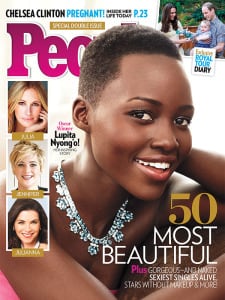 In 2014, People magazine named her the world’s most beautiful woman, but she didn’t always feel that way. Graceful and gracious with a luminous smile, it’s hard to believe that she was ever uncomfortable in the ebony skin she’s in.
In 2014, People magazine named her the world’s most beautiful woman, but she didn’t always feel that way. Graceful and gracious with a luminous smile, it’s hard to believe that she was ever uncomfortable in the ebony skin she’s in.
“I grew into loving myself,” Nyong’o explains. The multiple rings on her fingers capture the light as she gestures with her hands. Today she is wearing a sleeveless magenta dress, accented with black lines along the bottom, a black shrug with slim elbow sleeves and red flats. A black headband encircles her short natural and large hoops dangle from her ear lobes.
Her parents, Dorothy and Daniel Nyong’o, worked hard to offset the mixed messages she would encounter about her skin color, her hair texture and her possibilities as a young girl. She was born on March 1, 1983, when her father was a visiting lecturer in political science in Mexico City while in exile. She grew up in Ratta, a village near Kisumu in western Kenya — across the top of Lake Victoria from Uganda. Her father is a local senator, and her mother is managing director of the African Cancer Foundation. They are both Luo, the same ethnic group as President Obama’s father.
Education was big in the Nyong’o home. With her dual citizenship in Mexico and Kenya, Lupita Nyong’o speaks English, Luo, Swahili, Spanish and a little Italian. At an early age, she developed her sense of style and an interest in acting. While nurturing her dreams and self-esteem, her mother stressed inner beauty.
Despite a supportive home environment, Nyong’o said it was inspiring to see reinforcing images of Sudanese model Alek Wek, actress Whoopi Goldberg and media mogul Oprah Winfrey.

Lupita Nyong’o accepts the Oscar for performance by an actress in a supporting role in “12 Years a Slave.” (Aaron Poole / ©A.M.P.A.S.)
Nyong’o, who went from watching the Oscars in her pajamas one year to holding one the next, hopes that her award inspires young people everywhere to dream and to pursue those dreams. In her acceptance speech at the Academy Awards, she said, “When I look down at this golden statue, may it remind every child that no matter where you are from, your dreams are valid.”
She hopes that children find the same reminder about their dreams through Phiona Mutesi’s “fighting spirit.” And when children and young women see Nyong’o on the silver screen or on magazine covers, she hopes that she has the same effect on them that Alek Wek and others had on her. More importantly, she wants them to believe in their dreams and to love the person they see in the mirror.
“I understand how important that reflection is.”
Yanick Rice Lamb, co-founder of FierceforBlackWomen.com, is an associate professor and chair of the Department of Media, Journalism and Film at Howard University.
ART IMITATES LIFE: A video of the real Queen of Katwe, Phiona Mutesi.

